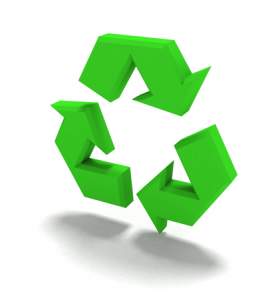San Diego Residents Talk Electronics Recycling
 People in Southern California have always been ahead of the curve when it comes to measures that focus on sustaining a clean environment. Through the California Redemption Value (CRV) programs, many residents began to see the value of recycling used bottles and cans. They saw that through the process of recycling, a financial reward could be obtained.
People in Southern California have always been ahead of the curve when it comes to measures that focus on sustaining a clean environment. Through the California Redemption Value (CRV) programs, many residents began to see the value of recycling used bottles and cans. They saw that through the process of recycling, a financial reward could be obtained.
The cash initiative program was an instant success that statistics show led to the recycling of over 250 billion bottles and cans beverage containers since the programs debut in the late 1980s.
The majority of people understand the importance of recycling, whether it be to access a financial gain or simply help in efforts to maintain a more environmentally friendly world for everyone. However, one of the forms of recycling that often times gets overlooked, and when not conducted can have a more substantial negative impact on the environment, is proper recycling of e-waste.
Understanding E-Waste
The term e-waste basically refers to electronics waste, and can be described as any electronics device that connects to a wall or requires batteries. Although almost every household in the United States contains at least one form of electronics device, many people are unaware of the problem e-waste has become. The topic of e-waste has surfaced more in recent years with the explosion in demand for technological devices and gadgets, including smart phones, GPS navigational tracking systems, home computers and more. When these devices are broken down into the component level they can be extremely hazardous to the environment, making the proper removal or disposal if the equipment a crucial issue. Not to mention, with people upgrading cell phones and computer systems on a seemingly annual basis, the trend of e-waste is likely to grow substantially.
Dealing With E-Waste
For both families and businesses, addressing the issue of e-waste is a cumbersome task. From the family perspective, placing paper, plastic and aluminum waste into the weekly recycling trash container is easy, but electronics are prohibited to be removed in such a way. Businesses also have challenges when it comes to e-waste removal, as they can face stiff financial penalty from the state in the form of fines if they do not contact the appropriate agencies that work specifically with electronics waste recycling.
The most effective method to dealing with e-waste is to look in a local directory or do an online search for companies that work in the field of electronics collection. For example, a business in San Diego wanting to have old computer systems collected or recycled can go online and search “San Diego Electronics Recycling” to find a local company that can provide assistance. What these eco-friendly local businesses will do, often time free of charge, is go to the business that needs e-waste removed, and either reuse or recycle the electronics. Since the most effective form of recycling is through reuse of devices, many electronics collection companies will come first attempt to find local schools, education centers or charities that could benefit from the electrical hardware if it is still in fair condition. As for the really old and out-dated computers or devices that likely can’t be put back into circulation for a good cause, that equipment is taken to the proper facilities for safe disposal or recycling, depending on the type of electronics devices.
E-waste is a serious issue that all people should be concerned about because we all share the same planet. By working with local electronics recycling and collection centers, businesses an families can keep toxic components out of land-fills, while helping their local community in a very positive way.